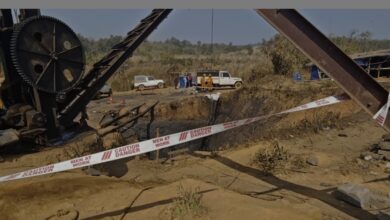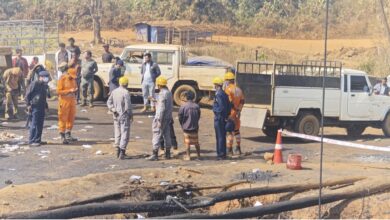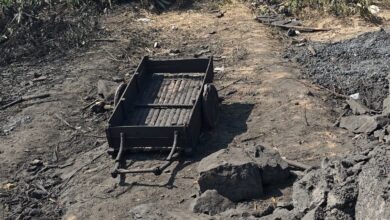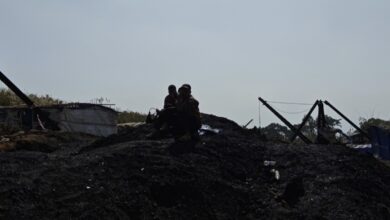Karnesh Marak: The forgotten statehood leader
Marak, the first Lok Sabha MP from Garo Hills, has received little attention from govt
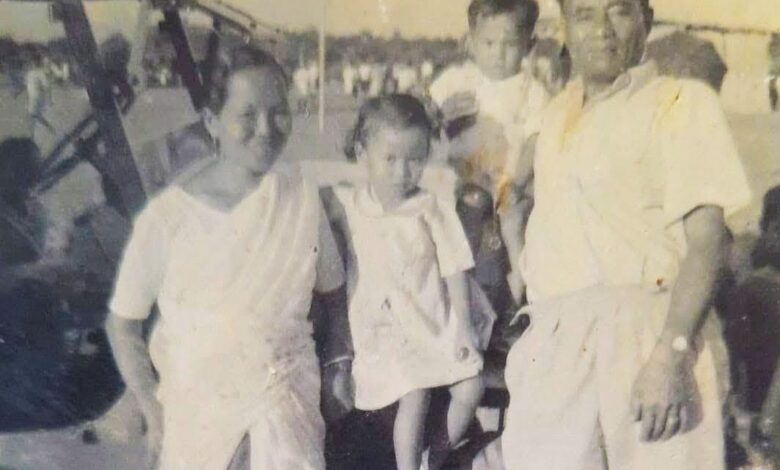
Dynastic politics is as much a concern in the national political arena as it is in Meghalaya and this has to change to create a level playing field for future leaders who are working at the grassroots level, said Beryl B. Sangma.
As Sangma spoke about the predominance of a few prominent families in the state politics, he remembered how his father, late Karnesh R Marak, the first Lok Sabha MP from Garo Hills, eschewed putting his family members in political positions.
“He did not like this (dynastic politics). But this is a reality now. Look at PA Sangma’s family or Mukul Sangma’s in Garo Hills. In Khasi Hills too, there are prominent families in politics. For instance, Ampareen Lyngdoh’s family,” he said.
Despite Karnesh being the first MP and an astute leader, there was barely any recognition in the state.
It was a hot and humid morning of July 17, 1920, when Karnesh was born at Nokmakundi near Damra in North Garo Hills to Kairam R. Sangma, a man of heavy built and short temper, and Jolje R. Marak, a hard-working woman, a loving wife and caring mother. His younger sibling, Sumoni R. Marak, died during the delivery of her first child.
Karnesh completed his primary education at Nishangram and joined the Middle English School in Tura where he passed the Middle School Scholarship Examination in first division and was awarded a scholarship. Later, he joined the Shillong Government High School where he became popular for excelling in studies as well as for his football skills. After completing the Matriculation Examination in first division, he took admission in Cotton College, Guwahati. He became the first graduate from the Garo community along with Wilson K Marak.
Karnesh worked as headmaster in a number of schools in Garo Hills. He was also conscripted to help the British Army against the German Army during World War I. His discipline, diligence, courage and leadership qualities helped him become a lieutenant in no time.
After a short stint in the army, Karnesh joined government service as a project executive officer and finally retired as Deputy Inspector of Schools. After retirement, he was asked to join the Garo National Council. He stood for election from Dalu constituency and was elected.
This was the beginning of his political career. Karnesh was given the responsibility of Executive Member of the GHADC in charge of Finance, Revenue, Education, etc. At that time, Capt. Williamson A Sangma was the Chief Executive Member of the district council. Both of them were in the forefront during the struggle for statehood.
When statehood was granted to Meghalaya, Karnesh was the unanimous choice to contest as a candidate for the Lok Sabha election. He did so and was elected as the first Member of Parliament from Garo Hills. It was Capt. Sangma who said, “We need a great leader with oratorial skills and courage, to represent us in the Parliament, in front of leaders from all the parts of the country.”
Karnesh was a prolific writer too and one of his books was used as a textbook for the Bachelor of Arts course in Garo literature. During his younger days, he played football in different places of Garo Hills and in Bangladesh.
His wife, HB Sangma, was also in government service and retired as the Deputy Director of Information and Public Relations.
During his tenure in Parliament, Karnesh took active part in various debates and delivered powerful speeches in the Lok Sabha as well as tried to bring in private member’s bills. That period also saw him suffer two heart attacks and his family did not allow him to contest elections anymore. His remaining years were spent on social service as well as diligent work for the local church. Karnesh breathed his last on May 8, 1985.
However, the state government, which is on a spree to unveil statues and busts of several prominent leaders in the state, has failed to give due respect to the statehood leader from Garo Hills. When pointed out, Sangma agreed that his father’s memory should have been preserved, especially in Garo Hills. He admitted that there was no one to take up this case as none from his family is in political power.
“In case of PA Sangma, his sons are in the government. In case of Capt. Sangma, his son was in politics. I could never take up this issue as I was in government service and mostly stayed outside my home state. Now, I feel maybe we should have done it,” he said, and at the same time, added, “My father was a person who would never hog for limelight and preferred to work quietly for the people of his state and the society.”
As Meghalaya celebrates its 50th year of statehood, it becomes important to remember the leaders who fought for the cause and highlight their achievements both in political and social spheres.
~ Team Sunday Monitor from Tura


